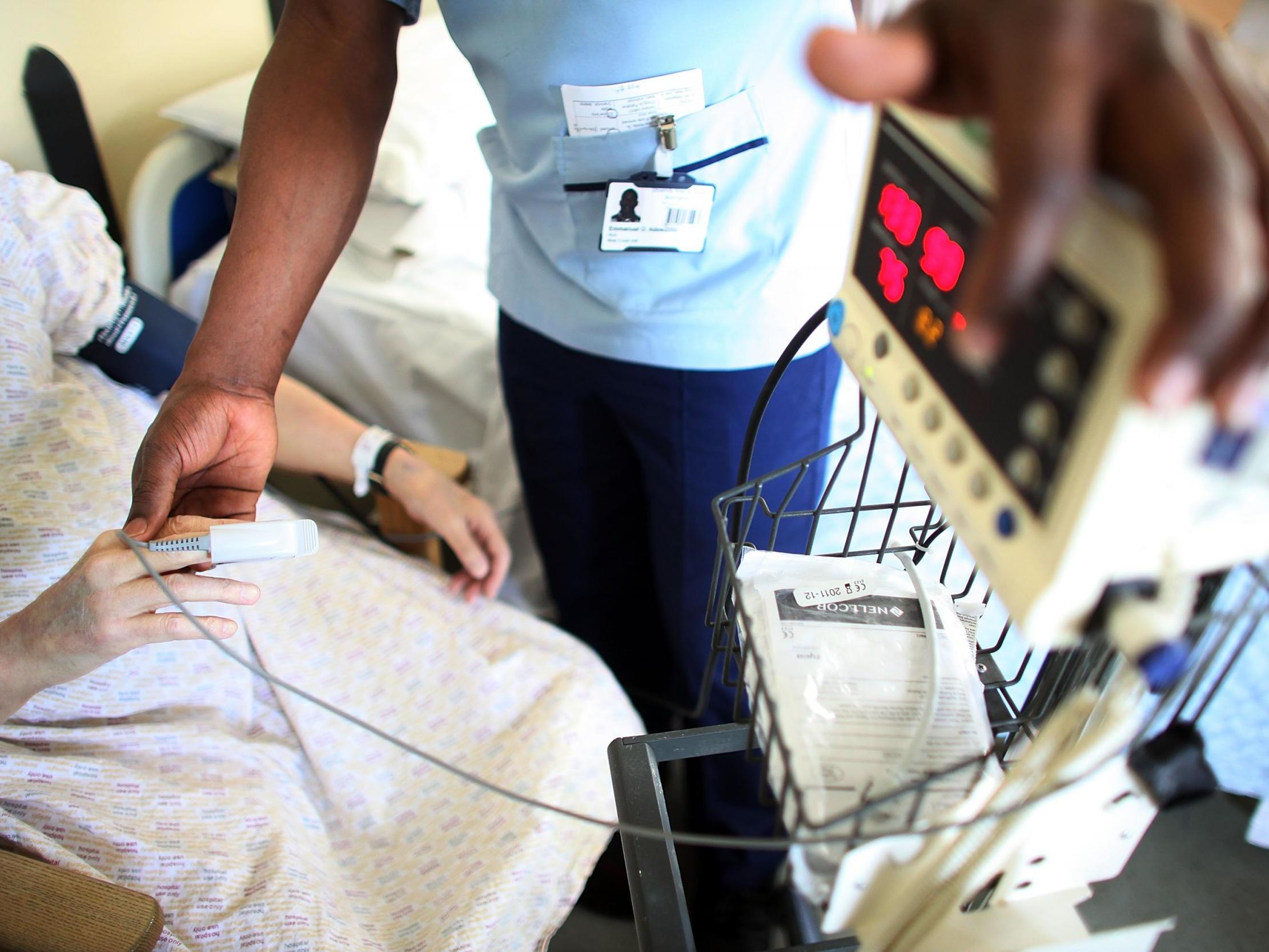The Independent's journalism is supported by our readers. When you purchase through links on our site, we may earn commission.
BAME NHS workers could be given roles reducing risk from coronavirus under new guidance
Letter from NHS England chiefs tells trusts to ‘make appropriate arrangements accordingly’

Your support helps us to tell the story
From reproductive rights to climate change to Big Tech, The Independent is on the ground when the story is developing. Whether it's investigating the financials of Elon Musk's pro-Trump PAC or producing our latest documentary, 'The A Word', which shines a light on the American women fighting for reproductive rights, we know how important it is to parse out the facts from the messaging.
At such a critical moment in US history, we need reporters on the ground. Your donation allows us to keep sending journalists to speak to both sides of the story.
The Independent is trusted by Americans across the entire political spectrum. And unlike many other quality news outlets, we choose not to lock Americans out of our reporting and analysis with paywalls. We believe quality journalism should be available to everyone, paid for by those who can afford it.
Your support makes all the difference.NHS staff from black, Asian and minority ethnic (BAME) backgrounds should be “risk-assessed” and possibly moved away from patient-facing roles during the coronavirus crisis, according to official guidance.
A letter from NHS England acknowledges UK data showing these workers are being “disproportionately affected by Covid-19” and urges health trusts to make “appropriate arrangements”.
Public Health England has been asked to look into the issue by the Department of Health, the letter from NHS chief executive Sir Simon Stevens and chief operating officer Amanda Pritchard said.
“In advance of their report and guidance, on a precautionary basis we recommend employers should risk assess staff at a potentially greater risk and make appropriate arrangements accordingly,” he added.
This could mean BAME health workers being relocated away from patient-facing roles or ensuring they are adequately fitted with personal protective equipment (PPE).
More than a third of critically ill Covid-19 patients have BAME backgrounds, according to Intensive Care National Audit and Research Centre data – despite less than 15 per cent of the population belonging to an ethnic minority, as of the 2011 census.
Of 119 NHS staff members reported to have died with Covid-19, more than 63 per cent were of BAME backgrounds, according to analysis by the Health Service Journal. Furthermore, the majority of NHS workers who have lost their lives were born outside of the UK.
The Royal College of Surgeons (RCS) backed the new guidance to protect BAME staff, who he said are “such an important part of our workforce”.
“They are a particularly at-risk group,” RCS president-elect, Professor Neil Mortensen told Sky News. “Like other at-risk groups, I think they need to not be put in positions where they’re not quite so at risk.
“We don’t really quite know why yet, but it’s important they are removed from – if you like – from danger.”
Shadow equalities secretary Marsha de Cordova signalled such a measure was considerably overdue.
"Finally Public Health England tell NHS trusts that all BAME staff should be assessed as being at potentially greater risk from coronavirus," she wrote on Twitter.
The Department of Health announced on 16 April that a review would take place to look into why BAME people were being affected disproportionately.
Some trusts have already taken steps to address the disproportionate risk faced by BAME staff. Bosses at Somerset NHS Foundation Trust recently wrote to BAME employees establishing how they can be supported during the pandemic.
The letter encouraged staff to ensure they are properly fitted with appropriate PPE and to access testing for themselves and family members.
“We recognise how worrying it is at the moment for our colleagues and we want to provide them with as much support as we can,” wrote Peter Lewis, Somerset NHS Foundation Trust's chief executive.
“Our BAME colleagues make a significant contribution to our trust and the care we provide to patients. We are grateful for their ongoing commitment.”
Additional reporting by PA
Join our commenting forum
Join thought-provoking conversations, follow other Independent readers and see their replies
Comments